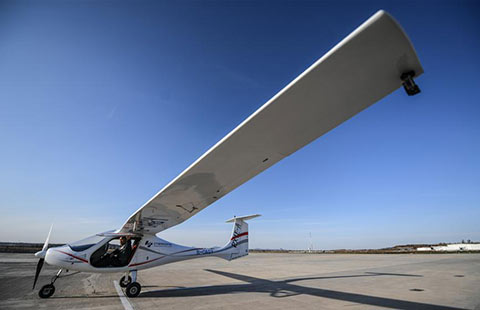Instant nourishers gain strength
China's instant food market, where noodles and frozen food reigned supreme once upon a time but fell upon bad times due to the rise of food delivery firms, is not only recovering but set to grow rapidly again.
Making that happen is a combination of new pricing strategies, novel flavors, rising health consciousness among consumers and technological innovations in the industry.
The first signs of recovery in five years came from Uni-President China Holdings Ltd's financial report for the first half of this year.
The instant noodles business of the group recorded a healthy revenue of 395.4 million yuan ($59.9 million). Although down 1.4 percent year-on-year, the fourth consecutive such drop, its key brand Soup Daren grew rapidly.
The group continued to lead the market segment in which products are sold at 5 yuan and above. It further optimized its product structure, which marked a big step toward industry upgrading.
In recent years, the emergence of food delivery services, availability of express trains and consumption upgrade had impeded the growth of the instant noodles segment.
Jason Yu, general manager of Kantar Worldpanel China, a market research firm, said the segment grew by 1.2 percent last year, while the first-half growth this year was 4.9 percent. "The rebound is obvious, prompted by the high-end products."
However, according to the Instant Noodles Report of Mintel Group Ltd released in January, the segment in China has continued to shrink, declining by 1.3 percent during 2014-16, as consumers became more and more health-conscious.
The declining working-age population and migrants, who used to be heavy buyers of instant noodles, also hurt over the last few years.
This has had a particularly adverse impact on Master Kong, a company that commands more than half of the market share.
In 2016, Master Kong's instant noodle unit earned a revenue of $3.2 billion, down 25 percent from that of 2013. Master Kong's net profit in the first quarter of this year has seen slight growth, but that came after it shrank its workforce by 15,000 in three years.
Uni-President and Master Kong together command a more than 70 percent of market share, and the top four account for nearly 85 percent of the market.
Uni-President has found that instant noodles are no longer bought by hungry consumers. Young consumers buy them to enjoy exotic flavors or to stay healthy.
High-end instant noodles still enjoy a price advantage over some takeout foods, but the two categories serve different purposes for consumers; and instant noodles will become complementary to the food delivery market soon, said Yu of Kantar.
High-end instant noodles priced more than 5 yuan have become the industry's answer to consumer demand for better quality food, he said.
In comparison, medium and low-end products' market shares and prices have continued to drop and could be phased out of the market, he said.
Yang Shouzheng, general manager of Uni-President China, said: "Sales of instant foods priced more than 5 yuan have seen double-digit growth."
The overall instant foods market, which had a market value of 391.5 billion yuan by the end of last year, grew 5.55 percent year-on-year in 2016.
























